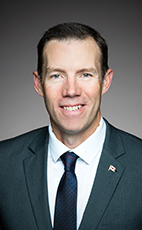Mr. Speaker, they may not want to admit it, but the job situation in Alberta is critical. Here is the real impact of the Liberal tax policy on some Alberta communities: High River minor hockey registration is down 20%; a Calgary dance studio's registration is down 100 kids; and Redwater food bank usage is up 60%.
They took away the child fitness tax credit, they took away the universal child care benefit, and they are replacing them with the job-killing carbon tax. It is only going to make a dire situation much worse.
When is the government going to realize that the tax policy decisions it is making and these schemes are only going to make lives much worse for Canadian families?

